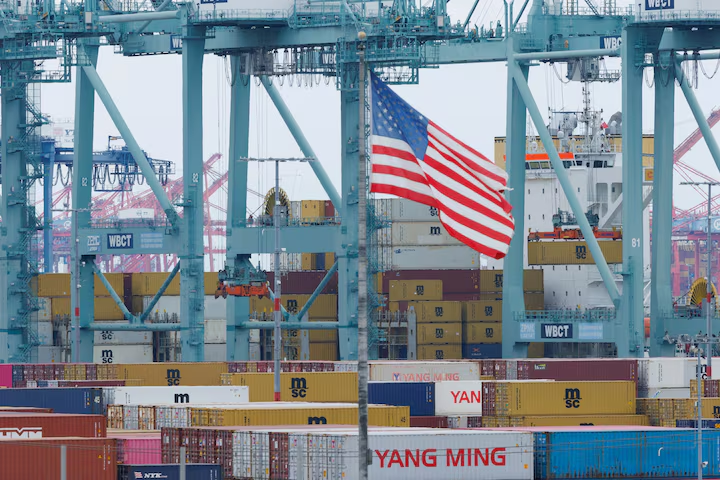As of June 2023, the International Centre for Settlement of Investment Disputes (ICSID) documented that it has managed a cumulative 933 proceedings under its Convention and Additional Facility Rules. A detailed examination reveals that 90.5% were conducted under the ICSID Convention, 8.1% via the Additional Facility, with Conciliation cases making up the remainder. The preceding decade saw an upswing in registered cases, although a downturn occurred in 2022.
Within the landscape of investor-state dispute settlements (ISDS), the United Nations Commission on Trade and Development (UNCTAD) reports 1,257 known disputes globally, with approximately 70% of these falling under the purview of ICSID.
Grounds for Dispute
Utilization of bilateral investment treaties (BITs) as a basis for cases in fiscal year 2023 accounted for 37% of ICSID’s caseload, a decrease from the long-standing average of 59%. Concurrently, 13% of disputes invoked the Energy Charter Treaty (ECT), a notch up from its historical 10%. Cases filed under the North American Free Trade Agreement (NAFTA) constituted 12%, preceding its sunset and the introduction of the United States Mexico Canada Agreement (USMCA).
Geographic and Economic Scope
In the fiscal year 2023, twenty-nine different nations were involved as respondents across twenty-three new cases, with a remarkable shift in regional distribution. Central America surpassed Eastern Europe with 22% of the cases, while North American countries were named in 11% of the disputes.
The extractive and energy sectors remained the foremost areas of involvement, capturing 27% for oil, gas, and mining, and 15% in relation to electricity and alternative energy. Finance, construction, and transportation sectors succeeded in volume, with additional sectors like information, communication, and water management being at 7% each.
Resolutions and Decisions
Settlement rates during fiscal year 2023 remained aligned with historical patterns, with 38% of registered cases reaching settlement. Historically, concluded ICSID proceedings exhibit an equitable rate of decisions favorable to investors and states alike, and this parity persisted into the previous year.
Diversity and Representation
In terms of diversity, Western European nationals dominated appointments of arbitrators at 41%, trailed by North American and South American designations. The United States led individual country appointments. Female representation among these appointments reached 22%, echoing the need for continued progress towards gender parity in international arbitration roles.
ICSID’s efforts to enhance transparency found new grounding in 2023, concretizing a trend that stakeholders have demanded and seen evolve over the past decade. This included the publication of case documents, awards, and tribunal decisions not previously accessible to the public. The institution’s transparency initiatives aimed at demystifying the arbitration process and increasing public trust, significantly influenced ICSID’s procedural reforms. Moreover, the push for greater transparency aligned with a global regulatory shift towards open governance and accountability in international dispute resolution.
Alongside the drive for transparency, 2023 also saw a notable trend where states became more active in defending their regulatory autonomy in ICSID arbitrations. A growing body of jurisprudence emerged, focussing on the right of states to regulate in the public interest without facing disproportionate constraints from investor protection clauses. The recalibration of the balance between protecting investors and respecting state sovereignty reflected evolving expectations from the international legal system. It pointed to a nuanced understanding of the interplay between foreign investment and sovereign regulatory space within ICSID proceedings.
Key Developments in ICSID Arbitration
In 2023, the International Centre for Settlement of Investment Disputes (ICSID) saw significant shifts in its jurisdictional reach, case types, and transparency practices, alongside the influence of new economic treaties and evolving regional dynamics.
Expanding Jurisdiction and Case Types
ICSID expanded its jurisdiction through broader interpretations of the ICSID Convention and Additional Facility Rules, accommodating a wider array of investment disputes. This expansion pertained notably to sectors not traditionally associated with ICSID, such as technology and services, which saw an increase in cases alongside the traditional gas, oil, and electric power disputes.
Rise of Environment and Energy Sector Disputes
Investment disputes involving the energy sectors, specifically within the realms of oil, gas, and electric power, underpinned the rise in cases related to the Energy Charter Treaty. Environmental concerns also took center stage, with an influx of cases reflecting the tension between state regulatory powers and investor interests in sustainable development.
Adoption of Transparency and Inclusion Measures
Transparency in arbitral proceedings took a leap forward, with ICSID implementing revised Procedural Rules that mandate greater information disclosure. Inclusion measures saw an uptick in the appointment of women arbitrators, promoting gender diversity and reflecting a broader shift towards inclusivity in investment arbitration.
Regional Trends and Case Distribution
Case distribution illustrated distinct regional trends, with a noteworthy number of cases stemming from Central America, Eastern Europe, and Central Asia. Western Europe and North America maintained a substantial volume of cases, while the Pacific, Caribbean, and African regions marked a concise increase.
Influence of New Free Trade Agreements
The entry into force of treaties like the United States-Mexico-Canada Agreement and other regional trade agreements, such as the Canada-Peru Free Trade Agreement, brought forth new dynamics in investment laws and dispute resolution, impacting the ICSID jurisdiction and arbitration patterns.
Caseload and Outcome Statistics
During the fiscal year 2023, the ICSID caseload statistics revealed a consistent number of new arbitration cases, with a mix of awards, conciliations, and discontinued cases. The outcome of cases indicated a balance between investor and state interests, aligning with historical patterns but showing subtle shifts in response to the evolving global investment landscape.
Future Outlook and Predictions
The landscape of ICSID arbitration is poised to evolve with significant changes anticipated across legal, economic, technological, and sector-specific domains.
Anticipated Legal Developments
The ICSID Arbitration Rules are likely to undergo amendments that focus on enhancing transparency and efficiency. Legal merit will be scrutinized more closely in investor-state disputes, leading to a probable reduction in frivolous claims.
Economic Impact on Arbitration Trends
Economic fluctuations in finance and investment sectors predict shifts in arbitration caseload statistics, with South America and Central America and the Caribbean seeing alterations in their regional distribution of cases due to changes in trade policies and investment treaties.
Prospective Technological and Procedural Adaptations
Advancements in information and communication technology will streamline case management. We can expect the ICSID Secretariat to implement more sophisticated platforms for arbitration and conciliation procedures, influencing arbitral tribunal efficiencies.
Sector-Specific Arbitration Focus
Emerging trends suggest an increase in investment disputes in sectors like electric power, mining, construction, and water and sanitation. Notably, advancements in flood protection may lead to new types of contracts and, consequently, disputes.
Evolution in Regional Investment Arbitration Patterns
There will likely be a notable change in the patterns of disputes in Middle East and North Africa along with a continued focus on Central America and the Caribbean, as regional economic developments and political stability impact investment strategies.
Advancements in Dispute Resolution Practices
ICSID’s conciliation services may gain traction as a preemptive strategy to avoid arbitration. Enhancements in this area will aim to improve outcomes and satisfy both investors and host states.
Predictive Analytics and Arbitration Outcomes
The adoption of predictive analytics tools will aid arbitrators and conciliators in anticipating the potential outcomes of disputes, thereby fostering more informed decision-making and potentially reducing the duration and cost of arbitration.
International Arbitration Community Dynamics
The arbitration community is likely to see a shift with the rise of new economic powers influencing the appointment of arbitrators and conciliators. This will also impact the International Centre for Settlement of Investment Disputes and its annual caseload statistics.
Strategic Investment and Dispute Prevention
Risk management in investor-state relations will evolve, with parties more actively using ICSID’s arbitration rules to preemptively address and settle potential disputes, thereby reducing the likelihood of escalation into formal investment cases.








